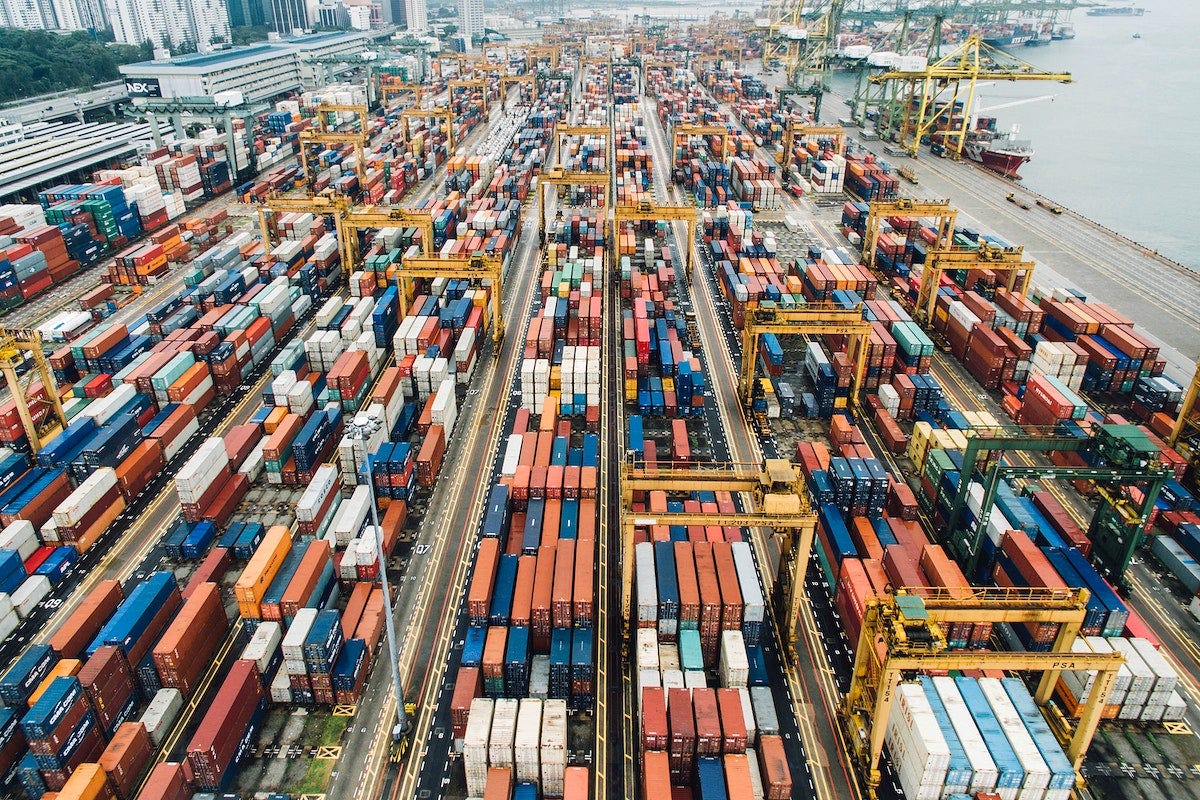Have a story idea
Have a story idea? Send it to us here.

Source : Rawpixel
January 10, 2025
Author : Alex Bustillos
Construction companies in the United States are facing growing uncertainty as President-elect Donald Trump’s proposed tariffs threaten to disrupt material costs and supply chains.
Trump has announced plans for a 25% tariff on goods from Mexico and Canada and an additional 10% tax on products from China, potentially reshaping the construction industry.
Trump’s proposed tariffs aim to address issues like undocumented immigration and the flow of narcotics into the U.S., but they could also drive up costs for essential construction materials.
Mexico, Canada, and China- the top three U.S. import partners- supply vast amounts of goods vital to the construction industry. Economists warn that the sudden implementation of tariffs could lead to price volatility.
“Heading into 2025 it’s unclear if prices will remain so well-behaved,” said Anirban Basu, chief economist at the Associated Builders and Contractors. He noted that contractors might face rising input costs as firms rush to import materials ahead of the tariffs.
Ken Simonson, chief economist for the Associated General Contractors, echoed these concerns. “Construction is more reliant than most industries on imported materials, parts and components. Because the industry is so diverse and obtains materials mainly through intermediaries rather than importing directly, it’s impossible to estimate the share of construction purchases that go for imports. Also, it varies by location as to whether contractors are using domestically sourced or imported materials such as lumber, steel or cement,” he explained.
While tariffs could create hurdles for many construction firms, they may benefit domestic producers. Ezra Hammer, a Portland-based attorney, highlighted opportunities for local manufacturing, particularly in mass timber production. “That is going to present renewed opportunity for local production, particularly around mass timber,” he said, referencing Portland-based Timberlab’s plans to expand operations.
However, broader industry impacts remain a concern. “Anything that contributes to further increased price of materials is never a good thing for the industry or the public, in our view,” said Mike Salsgiver, executive director of the Associated General Contractors’ Oregon-Columbia chapter, adding, “Tariffs should be a tool of last resort. We would rather see the administration engage in full-throated trade negotiations.”
During Trump’s first administration, tariffs on steel and aluminum led to significant price increases and logistical challenges. Simonson recalled that domestic producers raised prices in response, compounding the strain on contractors. “It’s not clear yet which items will be subject to tariffs and the effects, but another danger is the knock-on effects as other countries threaten to enact their own tariffs in retaliation,” he warned.
Josh Levy, a construction attorney in Milwaukee, emphasized how tariffs can disrupt project financing. According to him, construction projects already juggle multiple funding sources, so price volatility makes it harder to secure the materials needed to move forward. Some developers may delay projects until markets stabilize, while others might stockpile materials in anticipation of rising costs.
The unpredictable nature of Trump’s trade policies has contractors bracing for rapid changes. Dan Wilson, a trade attorney in Washington, D.C., expects that tariffs will target Chinese steel and aluminum, with potential spillover effects on goods processed in Mexico. “Because uncertainty is a key feature with the Trump administration and trade policy, contractors will have to watch materials pricing closely in the early days,” he advised.
Wilson also noted that federal legislation like the Infrastructure Investment and Jobs Act and the Inflation Reduction Act, which prioritize domestic suppliers, could see tighter restrictions under Trump. He further added that his administration has prepared to act swiftly, using every tool available to enforce tariffs without significant Congressional oversight.
Trump’s proposed immigration crackdown adds another layer of concern for the construction sector. Jordan Schnitzer, a commercial developer, warned that stricter immigration policies could exacerbate labor shortages. “If President Trump starts going into businesses and rounding people up who don’t have U.S. citizenships, you will see construction projects grind to a halt, you will see service businesses in massive trouble,” he said.
Schnitzer also focused on intellectual property issues in the U.S.-China trade. The countries are locked in an infrastructure race, with China pulling ahead in many key indicators.
Polls for years have indicated unease among Americans with the numerous foreign entanglements the country is involved with, while prioritizing domestic economic concerns remains high on the agenda.
While tariffs might deter unfair practices, it's unclear if they will overshadow the broader need to stabilize global trade.
American-made products may gain traction, while reliance on imports for key materials means price volatility will remain a challenge. The industry must adapt quickly to policy changes to mitigate disruptions, Wilson concluded.
In short, Trump’s trade policies could reshape the construction industry, creating both challenges and opportunities. As the new administration takes office, contractors will need to stay agile and informed to weather the potential storm.
Category : Federal Government Market Watch Material Costs
